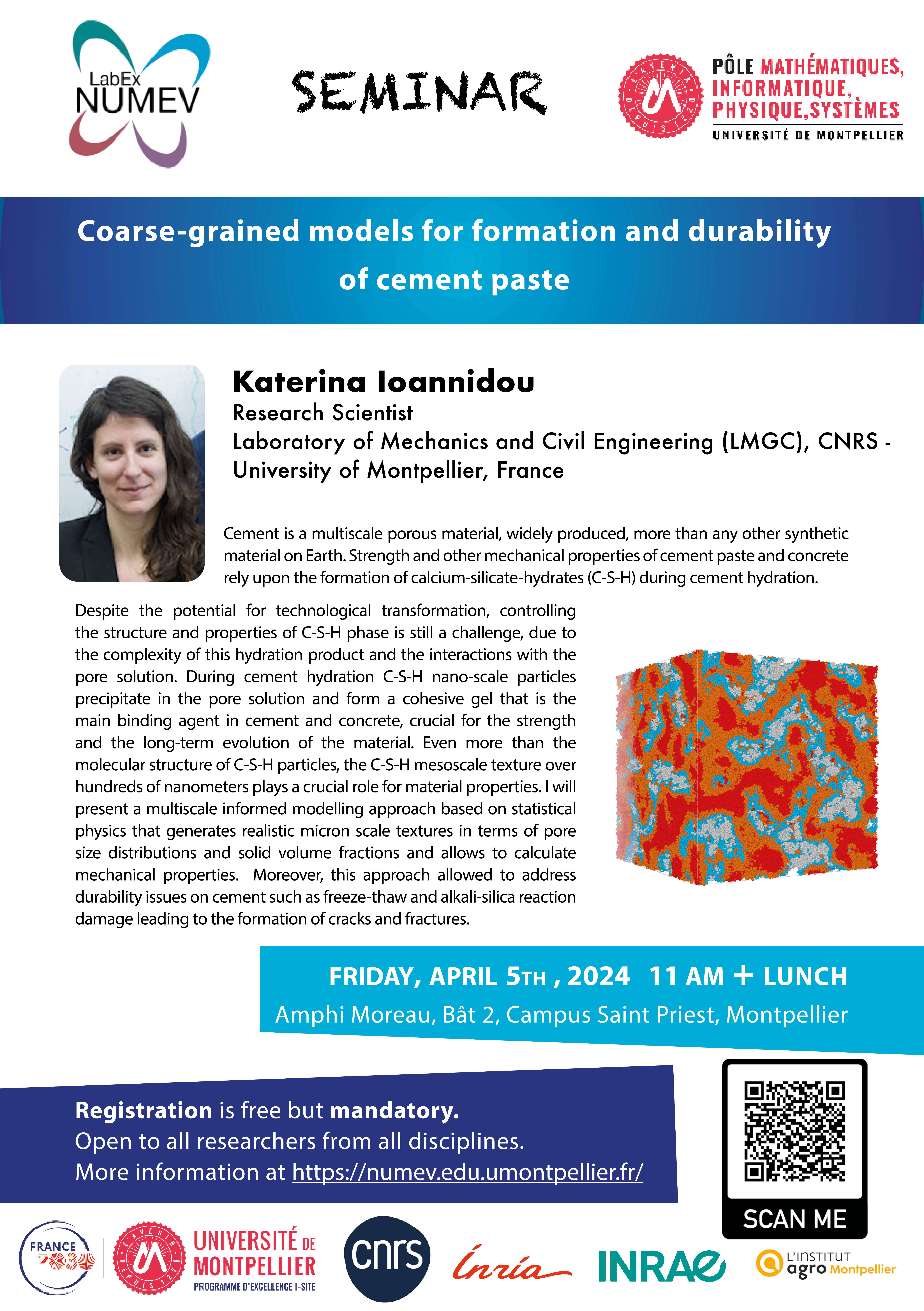Séminaire NUMEV-MIPS : Katerina Ioannidou
4ème Séminaire de l’année 2024 !
Les Séminaires NUMEV-MIPS sont ouverts à un large public d’étudiants, étudiantes, chercheurs et chercheuses de toutes disciplines, qui souhaitent en savoir plus sur les domaines de recherche actuels de la communauté NUMEV-MIPS (Mathématiques, Informatique, Physique et Systèmes) ou sur les possibilités de développer ses compétences et savoir-faire.
Coarse-grained models for formation and durability of cement paste
Katerina Ioannidou
Research Scientist
Laboratory of Mechanics and Civil Engineering (LMGC), CNRS – University of Montpellier, France
Cement is a multiscale porous material, widely produced, more than any other synthetic material on Earth. Strength and other mechanical properties of cement paste and concrete rely upon the formation of calcium-silicate-hydrates (C-S-H) during cement hydration.
Despite the potential for technological transformation, controlling the structure and properties of C-S-H phase is still a challenge, due to the complexity of this hydration product and the interactions with the pore solution. During cement hydration C-S-H nano-scale particles precipitate in the pore solution and form a cohesive gel that is the main binding agent in cement and concrete, crucial for the strength and the long-term evolution of the material. Even more than the molecular structure of C-S-H particles, the C-S-H mesoscale texture over hundreds of nanometers plays a crucial role for material properties. I will present a multiscale informed modelling approach based on statistical physics that generates realistic micron scale textures in terms of pore size distributions and solid volume fractions and allows to calculate mechanical properties. Moreover, this approach allowed to address durability issues on cement such as freeze-thaw and alkali-silica reaction damage leading to the formation of cracks and fractures.
Plus d’info sur Katerina Ioannidou https://www.lmgc.univ-montp2.fr/perso/katerina-ioannidou/cv/
